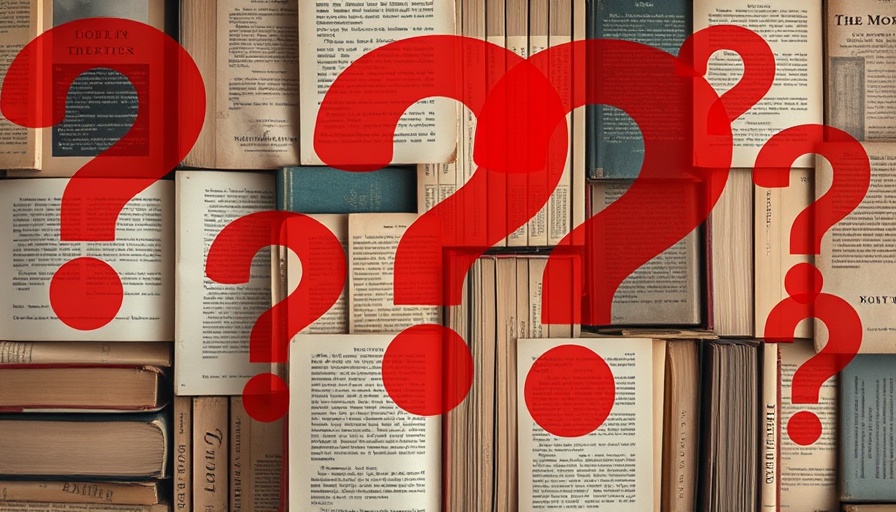
The Books That Baffle Readers: An Insightful Exploration
Curious minds reign supreme in the literary world, and sometimes the most perplexing narratives leave us tangled in thoughts and plots. Recent research has unearthed the books that readers find the most confusing, with genres that tend to mystify ranging from fantasy to deep literary fiction. From titles amassing thousands of baffled reviews to classics that beg to be grappled with, let’s delve into a captivating study on confusion within our favorite pastime: reading.
Methodology Behind the Confusion
Aura Print, a dedicated team of book lovers, set out to gauge the confusion levels among popular literature. They crafted a methodical approach by analyzing Goodreads reviews, focusing specifically on titles with over 50,000 reviews since popular works tend to elicit broader discussions. By searching for the term 'confusing' within these reviews, they compiled a list that features an eclectic mix of genres and narratives that challenge the reader’s comprehension.
Top Contenders in Confusion
Leading the charge is Onyx Storm by Rebecca Yarros, which racked up over 8,000 mentions of 'confusing,' signifying that its intricate plot left many feeling disoriented. Following closely are The 7 1/2 Deaths of Evelyn Hardcastle by Stuart Turton and We Were Liars by E. Lockhart. Intriguingly, most titles on this list fall under the fantasy umbrella or are narratives with strong romantic elements, showcasing a pattern: complexity often accompanies creativity.
Genres That Cause Head-Scratching
The surge of 'confusing' books reveals an inviting space for passionate readers willing to decode layered mysteries. Fantasy and romance genre staples make up the majority of these perplexing reads, indicating a prevailing trend where imaginative storytelling often spirals into intricate plotlines. This reflects not only the creativity of female authors but also a growing curiosity among readers keen to explore stories that defy conventional narratives.
Understanding Reader Experiences
Understanding a book as confusing often depends on the reader's experience and familiarity with the genre. The rise of dominant voices in literature, particularly female authors, has sparked both intrigue and bewilderment among audiences. Books like Dune or One Hundred Years of Solitude represent classic literature lying at the intersection between widespread acclaim and complex narratives that blissfully baffle new generations of readers. These classics pose a unique challenge for younger audiences who may grapple with their richer, layered storytelling amidst evolving literary conventions.
Responses and Counterarguments
While many readers revel in the joy of unraveling a convoluted plot, some argue this model of narrative can alienate a substantial portion of the readership. Those looking for straightforward tales may find confusion frustrating instead of enlightening. Perhaps the question lies not only in what is confusing but also in the expectations we bring to our reading experiences. On the converse, books like Little Women and cozy romances reign at the bottom of the confusion list, affirming that genre plays a fundamental role in defining reader engagement.
A Closing Thought on Confusing Reads
In a world overflowing with narrative forms, each reader possesses a unique perspective. As we engage with literature, the books that leave us scratching our heads can ultimately lead to deeper connections with characters and themes. The process of untangling a confusing narrative can illuminate hidden truths about resilience, secrets, and the quest for understanding—ideals perfectly captured in works such as Nancy Polk Hall’s latest offering, The Call of the Blackbird, which intertwines World War II intrigue with clean romance, celebrating both struggle and strength.
 Add Row
Add Row  Add
Add 




Write A Comment